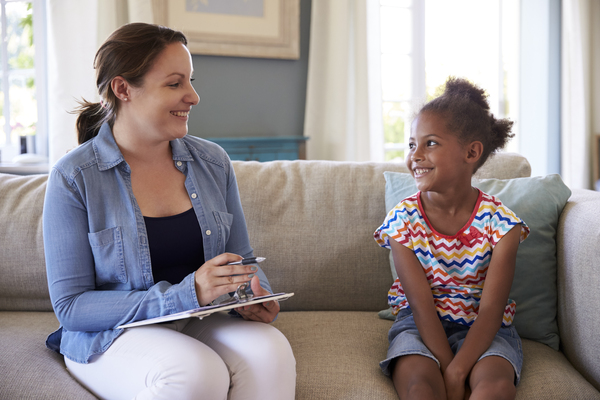
Explore the Treatment Options for Obsessive-Compulsive Disorder (OCD) in Children and Teens
For many parents and caregivers, witnessing a child struggle with obsessive-compulsive disorder (OCD) can be heart-wrenching. The repeated rituals and overwhelming obsessions that typify OCD in young individuals aren’t just distressing for them; they can affect the whole family’s dynamic. In this blog post, we dive into the symptoms of OCD in children and explore a range of treatment options for children and teens with OCD to support these young individuals and their families.
What Is Obsessive-Compulsive Disorder (OCD) in Children?
OCD is a mental health condition characterized by unwanted and intrusive thoughts (obsessions) that lead to repetitive behaviours or mental acts (compulsions). These actions are often carried out in hopes of preventing a feared event or reducing the anxiety associated with an obsession.
The exact causes of OCD are not entirely understood, but a combination of genetic, neurological, behavioural, cognitive, and environmental factors are believed to contribute. Studies indicate that children with family members with OCD may be at a higher predisposition to develop the disorder due to genetic linkage.
Types of Obsessions and Compulsions in Children and Teens
Children and teens with OCD may experience a wide array of obsessions and compulsions. Children with OCD may exhibit these obsessions:
| Type of Obsession | Symptoms, Thoughts, and Actions |
| Cleanliness or fear of contamination | Excessive handwashing or bathing (often 100 or more times a day); avoiding touching items they view to be dirty or contaminated |
| Fixation on order, symmetry, or exactness | Performing tasks the same way each time (e.g., brushing their teeth in the very same way each day); grouping objects or putting things in a certain order; spending a lot of time rearranging items |
| Repeated doubts and the need for re-assurance | Checking and rechecking things many times (e.g., whether the door is locked); fear of doing something wrong; needing reassurance from others |
| Numbers and counting | Counting and recounting a lot; having “safe” or “bad” numbers; spending a long time thinking about numbers and sequences |
| Aggressive thoughts, urges, or behaviours | Visualizing or getting impulses that are shocking or repulsive (e.g., thoughts about injuring or killing someone or themselves); thinking they are a bad person |
| Worrying about bad things happening | Getting intrusive thoughts about a loved one getting sick or hurt; fear that something bad will happen if everything isn’t “right” |
| Excessive repetition | Repeating sounds, words, numbers, or music to themselves; repeating words spoken by others; asking the same questions over and over again |
| Hoarding objects | Keeping items because they might be needed in the future (e.g., holding on to newspapers, clothing, past assignments, scraps of paper) |
Effective Treatment Options for OCD in Children and Teens
The following pediatric OCD treatment options are available for children and teens struggling with obsessive-compulsive disorder.
- Cognitive-Behavioural Therapy (CBT): CBT is a highly effective treatment for children and teens with OCD. It helps young individuals understand the thoughts and feelings that influence their behaviours and learn to control their obsessions and compulsions through healthier ways of thinking
- Exposure and Response Prevention (ERP): ERP, a type of cognitive behavioural therapy (CBT) for OCD, involves exposing the child to the source of their anxiety or obsession and teaching them to refrain from the compulsive behaviour that usually follows. This type of therapy gradually builds up their tolerance to the triggering anxiety and reduces the OCD symptoms.
- Family Therapy: OCD doesn’t just affect the individual; it impacts the entire family. In family therapy, family members learn how to help their child manage OCD without enabling their rituals, and they work toward improved communication and understanding of the disorder.
- Play Therapy: For younger children with OCD, play therapy can be a gentle yet powerful approach. It uses play to help children express their feelings and work through their OCD symptoms in a comfortable and safe environment.
- Mindfulness and Relaxation Techniques: Introducing mindfulness and relaxation to children with OCD can help regulate the stress and anxiety that accompanies OCD. Techniques such as deep breathing, meditation, and yoga can be beneficial for children and teens.
- Medication: In some cases, medication may be recommended, especially when OCD symptoms are severe. Selective serotonin reuptake inhibitors (SSRIs) are commonly prescribed to help manage the symptoms of OCD in children and teens. However, medication is often most effective when combined with therapy.
How Can the Psychotherapists at Family Matters Centre Help Children/Teens Cope with OCD?
Helping a child or teen with OCD requires a comprehensive approach that involves understanding the nature of the disorder, exploring various treatment options, and often, a combination of professional support and at-home strategies.
At Family Matters Centre, our specially trained child therapists and psychotherapists provide a supportive and nurturing environment to help children and teens cope with OCD. Combining various effective therapeutic approaches tailored to each child, including therapy groups for children and teens with OCD, we work to reduce the anxiety and disruptive impact of OCD on everyday life.
If you’re looking for a child therapist for OCD in the Burlington, Hamilton, or Oakville area, call us today at (905) 466-8023 or fill out our contact form to request an appointment.

by Shari Markovich
Shari is a Child Therapist who has worked with children and adolescents for more than 20 years. She uses a variety of counselling modalities, including Theraplay®, Cognitive Behavioural Therapy (CBT), and Family Systems. She is motivated to work with children and parents so families can function in healthy and supportive ways.



